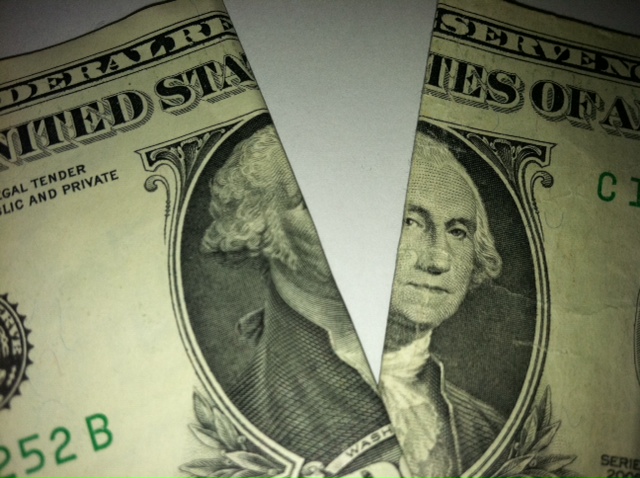The Federal Reserve release its Beige Book on Wednesday, and it seems as though Ben Bernanke and Fed presidents are trying to hint more and more that the end of the Fed’s bond buying and quantitative easing measures may continue longer than just this year. While most comments were officially targeting at least the end of 2014 as a timeline for months, the more recent arguments have been that the Federal Reserve would end its easing measures sooner than expected.
One such issue is that Ben Bernanke’s term ends on January 31, 2014. That is just over nine months away. If you consider that the Chairman of the Fed has to go through the Congressional approval process, there is an inherent conflict of interest in Congress wanting a dovish rather than hawkish bias by the Federal Reserve. Low interest rates mean lower costs of borrowing for the US government and for local governments.
Since the official stance in the Beige Book is that the economy is growing at a moderate pace, this keeps the gravy train going to support bond buying and to support quantitative easing. As far as the FOMC keeping the wording that there is no evidence of a sharp economic slowdown, the underlying strengths and weaknesses still merit a very accommodative stance from Ben Bernanke and friends. The economic upgrade that we saw seemed too small to really measure up to any real change in the Fed policy.
With the FOMC strictly targeting 6.5% for a target unemployment rate, we noticed that the minutes showed that employment conditions remained unchanged or improved somewhat despite larger hiring in housing, manufacturing, professional services, and information technology.
If the economy is in a status quo, then so is quantitative easing and so is the majority of the bond buying. Our take is that some members of the Fed have already signaled that simply tapering off or lowering the dollar amounts of bond buying would still be a fiscal policy that is highly accommodative.
Here is the start of the Beige Book:
“Reports from the twelve Federal Reserve Districts suggest overall economic activity expanded at a moderate pace during the reporting period from late February to early April. Activity in the Cleveland, Richmond, St. Louis, Minneapolis, and Kansas City Districts was characterized as growing at a moderate pace, while the Boston, Philadelphia, Atlanta, Chicago, and San Francisco Districts noted modest growth. The New York and Dallas Districts indicated that the pace of expansion accelerated slightly since the previous Beige Book.”
One might ask what the real difference is between moderate and modest. That being said, all we can do is notice that the markets have held up since the 2:00 PM report. The conclusion of the introduction before the nitty gritty said:
“Outlooks among respondents remained optimistic across sectors and Districts, with growth mostly expected to continue at the same or a slightly improved pace. Some uncertainty remained, primarily regarding fiscal policy and health care reform.”
The S&P 500 has recovered only slightly from the afternoon lows but that index is still down over 19 points at 1,554.75. The DJIA is down 113 at 14,643. The 10-year Treasury note yield is 1.70% and the 30-year Treasury’s long bond is at a 2.87% yield.
Get Ready To Retire (Sponsored)
Start by taking a quick retirement quiz from SmartAsset that will match you with up to 3 financial advisors that serve your area and beyond in 5 minutes, or less.
Each advisor has been vetted by SmartAsset and is held to a fiduciary standard to act in your best interests.
Here’s how it works:
1. Answer SmartAsset advisor match quiz
2. Review your pre-screened matches at your leisure. Check out the advisors’ profiles.
3. Speak with advisors at no cost to you. Have an introductory call on the phone or introduction in person and choose whom to work with in the future
Thank you for reading! Have some feedback for us?
Contact the 24/7 Wall St. editorial team.






